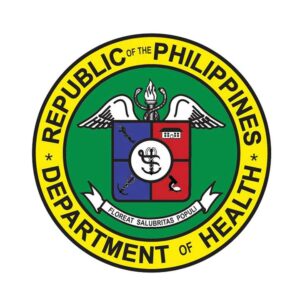The first case of mpox (also known as monkeypox) has been confirmed in the Philippines, following its declaration as a global public health emergency on Wednesday, according to the Department of Health (DOH).
This new case is the first since the last case reported in December 2023, bringing the total to 10 laboratory-confirmed mpox cases reported to the DOH as of Sunday.
The patient is a 33-year-old male Filipino from Metro Manila with no travel history outside the country but with “close and intimate contact” prior to the onset of symptoms, accodring to the DOH.
The DOH suggested that the patient may have contracted the mpox virus locally.
“Yung virus ay nandirito sa Pilipinas. We have 9 cases in 2023, pero pakonti-konti ang nate-test natin so that means the mpox virus is among us, so hind siya imported nandidito siya (The virus is here in the Philippines. We had 9 cases in 2023, but we have been testing only a few, which means the mpox virus is present among us locally),” Teodoro J. Herbosa, Secretary of DOH said during the Media Forum on Monday.
The patient’s mpox symptoms began over a week ago with fever, followed four days later by a distinctive rash on the face, back, neck, trunk, groin, and on the palms and soles.
By testing the skin lesions collected from the patient, positive results for monkeypox viral DNA were found via a real-time polymerase chain reaction (PCR) test.
Mr. Herbosa said that the patient is currently isolated, and they are conducting contact tracing to contain the virus’s transmission.
Containing mpox virus
The DOH anticipates an increase in mpox cases as a global public health emergency declaration is still in effect, but he notes that the expected reproductive number (R0) will be significantly lower compared to COVID-19.
“Ang COVID ay airborne so kaya ang bilis. Pagkasakay mo lang sa bus, sa tren, sa jeepney pwede kang mahawaan, [COVID is airborne, so the transmission is quick; just by riding a bus, train, or jeepney, you could easily get infected], unlike (mpox) close and intimate contact,” Mr. Herbosa said.
According to the World Health Organization (WHO), mpox can be acquired through personal touch, kissing, or sex, as well as contact with contaminated sheets, clothes, or needles.
Maintaining hands clean with soap and washing contaminated items with laundry soap can help eliminate the virus.
However, if you contract the virus, Mr. Herbosa advises isolation and home quarantine, particularly for individuals without comorbidities, as the symptoms are mild, Mr. Herbosa said.
“So, the moment na meron kang symptoms or mag-positive ka, mag-isolate na [As soon as you have symptoms or test positive, you should isolate],” Mr. Herbosa said.
Patients with mpox are treated with supportive care and are expected to recover, typically 2 to 4 weeks.
“Yung sintomas po ang ginagamot kung nilalagnat sila bibigyan sila ng Paracetamol, kung may makati sa kanila ‘anti-pruritus’ or anti-kati at aalagan yung mga lesions nila [The symptoms are the ones being treated. If they have a fever, they are given paracetamol. If they have itching, they are given anti-itch medication, and their lesions are cared for],” Mr. Herbosa said.
On Monday, the DOH said that they are updating their mpox guidelines to facilitate a more convenient and dignified approach, encouraging people at risk to seek consultation and testing.
“DOH will make the testing process as convenient as possible, so that suspect cases may be identified fast and allowed to stay at home,” Mr. Herbosa said. – Edg Adrian A. Eva
